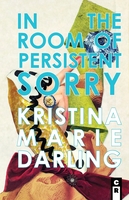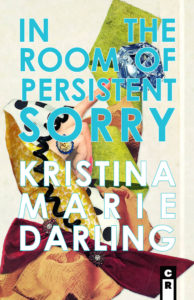
 ABOUT
ABOUT
The essays in this collection use a wide range of contemporary experimental texts as a point of entry to a single question: Is there a uniquely female variety of sorrow? This book does not provide a clean answer, but rather, an ongoing effort to refine the question. These essays ask what it means to be other, what it means to be othered by and through language, what it means to be captive to grammar and its implicit logic, and what being captive in this way does to an inner life and a psyche, what is knowable (and what cannot be articulated) in an inner life and that is restricted by the artificial order of the sentence, and whether it is possible to think or feel what exists at the very periphery of grammar. After all, there is always sadness in knowing what lies just beyond our reach.
HYPE
Kristina Marie Darling presents a master class in the literary essay. Elegant and thoughtful, she delves deep into the present moment in writing. Dedicated to the hybrid, the wayward, the shy and almost visible text, she uncovers new terrain in contemporary writing. And she is a brilliant contextualizer. Let her lead you into the Room of the Persistent Sorry; what you’ll encounter is quietly marvelous.
–Matthew Rohrer, author of THE OTHERS.
“Is the true catastrophe political or existential? How can the other remain other? Is the fulfillment of desire though the creation of narrative? Is language best thought of as a barrier or conduit to consciousness, and is there an outside to empire? These are just a few of the provocative questions Kristina Marie Darling raises in her breathtaking new essay collection, interpolating brilliantly with questions of feminist poetics and praxis, technology and the psychic landscape, and cultural memory in the digital age. Darling not only establishes, in her astute and compassionate readings, the point where the ‘body ends and myth begins,’ but also a new theory of the lyric and the individual, born in the space between received texts, mediated by grammar and culture, but alive and well, ‘To construct a lovelier arc, a story more just and true’: what more could be asked of poetic criticism? What more could be asked of you?”
–Virginia Konchan, author of THE END OF SPECTACLE.
